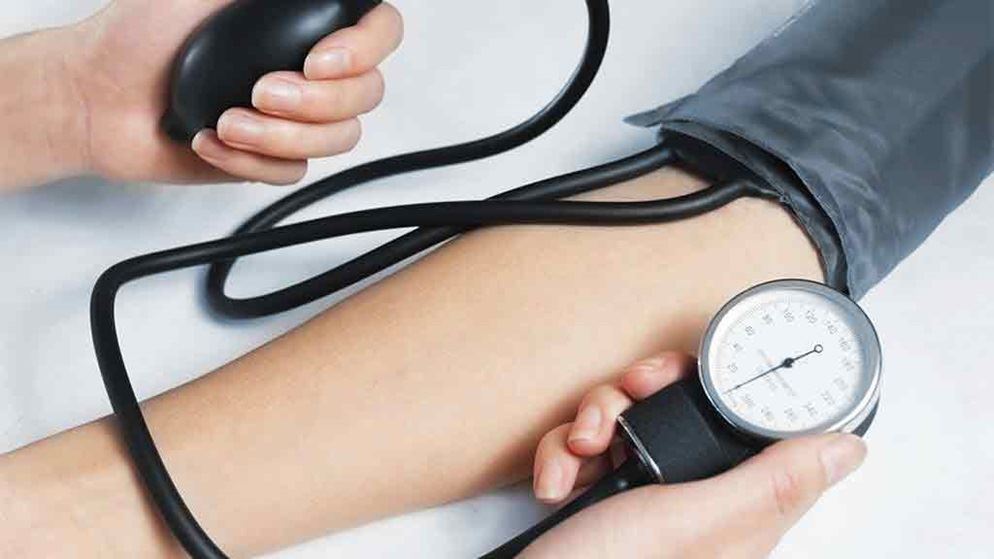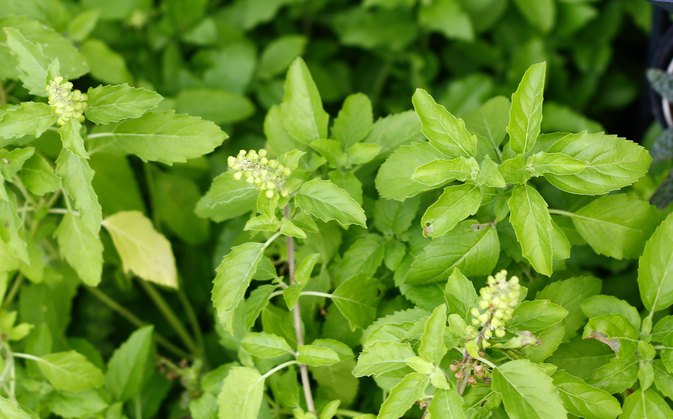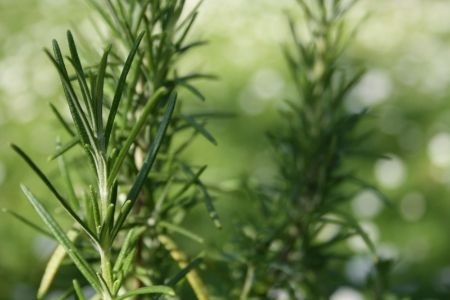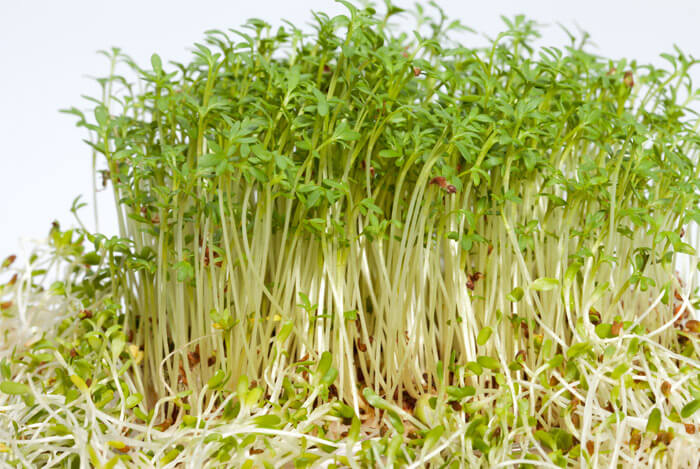Who says herbs can only be used to add flavour to food? If used judiciously, they are a good source of vitamin for the skin. According to Ayurveda, natural glowing skin is a reflection of the overall health of a person. Herbs used in Ayurveda are basically used to eliminate the vitiated tri-dosha from the body and purify the skin. Here are 10 herbs which can be used to get a naturally healthy complexion.
1) LICORICE FOR DEPIGMENTATION
Commonly known as mulethi, licorice has a mild smoothening and brightening action that helps in reducing hyper pigmentation and sun damage. Licochalcone A, an active ingredient in licorice acts as a shield and protects the skin from ultraviolet rays and blocks melanin production. The root extracts are potent for red, acne-prone skin and for dull and dehydrated skin. How to use 1tbsp licorice powder and 1 tsp oats powder; make a paste with milk for oily skin and with rosewater for dry skin.
2) SAFFRON FOR RADIANT SKIN
Saffron, or kesar, is an excellent skin toning agent. It helps in eliminating blackheads and unclogging pores. Saffron also scavenges the free radicals and promotes blood circulation to the face, thereby ensuring that the skin looks toned and firm. Its anti-inflammatory nature, due to the presence of antioxidants, enables it to be used in fighting fine lines, and patchy skin. How to use Soak a few filaments in milk. Apply this milk for five to ten minutes.
3) ALMOND TO REMOVE DEAD SKIN CELLS
Almonds are really good for skin as they contain a good amount of vitamin E, an antioxidant, which helps in preventing cell damage and in checking the damage caused by sun's rays. Almond milk especially is rich in proteins and vitamins and helps in keeping the skin hydrated. Almond oil, on the other hand, is a brilliant moisturiser as it contains olein, glyceride and linoleic acid. It works to prevent acne, blackheads, as well as very dry and prickly skin. It helps to bring a glow to your skin and acts as a mild disinfectant for wounds. How to use Soak a few crushed almonds in milk and use it as a scrub.
Also read: Dear men, you need to STOP making these 3 terrible skincare mistakes
4) CINNAMON TO TREAT ACNE
Cinnamon is said to improve fine lines by plumping and firming the skin. This means that using cinnamon can stimulate blood vessels and bring blood to the surface of the skin. Being antiseptic in nature, it also helps in the treatment of acne and pimples. How to use Use a mixture of three drops of cinnamon essential oil and 2 tbsp almond oil. Apply this mixture to fine lines on the skin, avoiding eyes. The skin soon plumps out and fine lines become less visible. You can also mix 1 tbsp cinnamon powder and 3 tbsp honey and apply the paste on pimples.
5) SANDALWOOD FOR OILY SKIN
The toning effects of sandalwood help in shrinking skin pores, thus giving the skin an even texture besides preventing sagging and ageing. Its antiseptic, anti-inflammatory and disinfectant properties help in reducing pimples and acne. How to use Mix fuller's earth with sandalwood powder and rosewater; the pack is good for oily skin.
6) TOMATO TO REDUCE OPEN PORES
There are several benefits of tomato juice for the skin; it helps in balancing pH, tightening pores, treating sunburn, reducing irritation and curing acne. Tomato has lycopene which acts as a skin safeguard against sun damage. How to use Use tomato juice alone or along with other beneficial ingredients to maintain healthy skin, as well as to treat common skin problems.
7) WHEATGRASS FOR YOUTHFUL SKIN
Anti-bacterial in nature, wheatgrass detoxifies the body and helps to normalise red blood cell counts. It helps to rejuvenate the body, fights deleterious effects of age, and is referred to as the "plasma of youth." Loaded with vitamins A, C, B complex and E, super oxide dismutase (SOD), chlorophyll, multi minerals, amino acids, and enzymes, it acts as a natural skin ointment against acne and eczema. How to use Helps soothing sunburnt skin. Take 1 tbsp wheatgrass powder, 3 tbsp water and cotton balls. Mix it, apply on the affected area with cotton ball.
8) NUTMEG FOR PUFFINESS
Macelignan present in nutmeg eliminates fine lines, wrinkles and sagging skin by replenishing adipose tissue beneath the skin. The stimulating properties of this spice restore and rejuvenate the skin by getting rid of dead cells. Its anti-inflammatory, anti-viral and anti-microbial properties help eliminate pimples and spots. How to use Mix nutmeg powder and milk and apply it as a face pack.
9) NEEM TO GET RID OF BLACKHEADS
Also known as Indian Lilac, neem proves to be a miracle for problematic skin, due to its anti-fungal and anti-bacterial properties. It is a boon for those with sensitive or oily skin. Neem contains Vitamin C, which helps in getting rid of skin problems like blackheads and pigmentation. How to use Boil a few neem leaves. Strain the liquid and let it cool. Apply to skin as a toner.
10) ASHWAGANDHA TO FIGHT DRY SKIN
Ashwagandha contains high levels of antioxidants that savage the free radicals to fight wrinkles, dark spots, fine lines and blemishes. It also protects from skin cancer and is good for healing wounds. It is also useful for treating keratosis, a condition that leads to rough and dry skin. Consume three grams of ashwagandha with water twice a day to treat it. How to use Take 1 tsp ashwagandha powder and 1tsp sandalwood powder. Mix it with fresh aloe vera pulp to make a paste and apply it as face mask.

![Slide 2 of 12: <p>[<strong>Related: </strong><a href="http://www.theactivetimes.com/content/top-20-secrets-people-who-never-get-sick/slide-2"><strong>The Top 20 Secrets From People Who Never Get Sick</strong></a>] Drink water, but don’t overdo it. Water is needed to help the kidneys function properly. It helps them dissolve nutrients and ensures that bacteria, proteins and waste products don’t build up in the kidneys and bladder.</p>](https://img-s-msn-com.akamaized.net/tenant/amp/entityid/AAidwS9.img?h=522&w=874&m=6&q=60&o=f&l=f)
![Slide 5 of 12: <p>[<strong>Related: </strong><a href="http://www.theactivetimes.com/fitness/your-first-time/medications-make-you-sensitive-sun-and-heat"><strong>Medications That Make You Sensitive to the Sun and Heat</strong></a>] Be careful when consuming pain medications – especially analgesics. They may help control your pain, but if there is decreased kidney function, you should avoid them at all costs. They reduce blood flow to the kidneys, <a href="https://www.kidney.org/atoz/content/painmeds_analgesics"><strong>according</strong></a> to the National Kidney Foundation. Check with your doctor to be sure if you can use certain medications.</p>](https://img-s-msn-com.akamaized.net/tenant/amp/entityid/AAidJug.img?h=522&w=874&m=6&q=60&o=f&l=f)
![Slide 7 of 12: <p>If you have diabetes, it’s important to keep your blood sugar under control in order to protect your kidneys. [<strong>Related: </strong><a href="http://www.theactivetimes.com/fitness/nutrition/diet-changes-might-reduce-your-risk-diabetes"><strong>Diet Changes That Might Reduce Your Risk For Diabetes</strong></a>] Make sure you exercise, consume a healthy diet of fruits and vegetables and cut out alcohol.</p>](https://img-s-msn-com.akamaized.net/tenant/amp/entityid/AAidBUG.img?h=522&w=874&m=6&q=60&o=f&l=f)


























